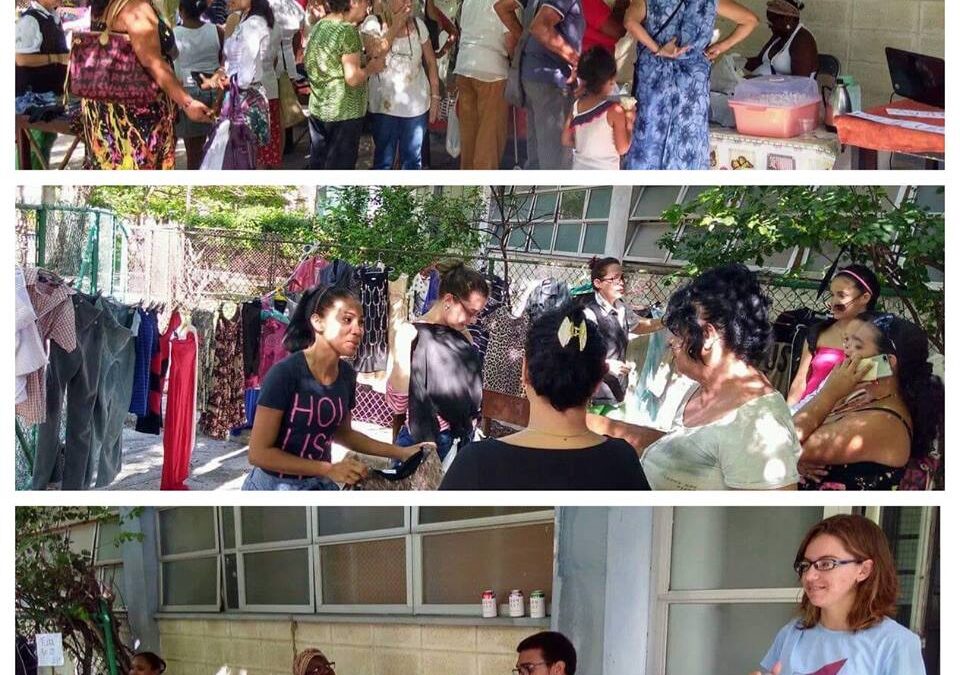
28 Jun 2018 | Focolare Worldwide
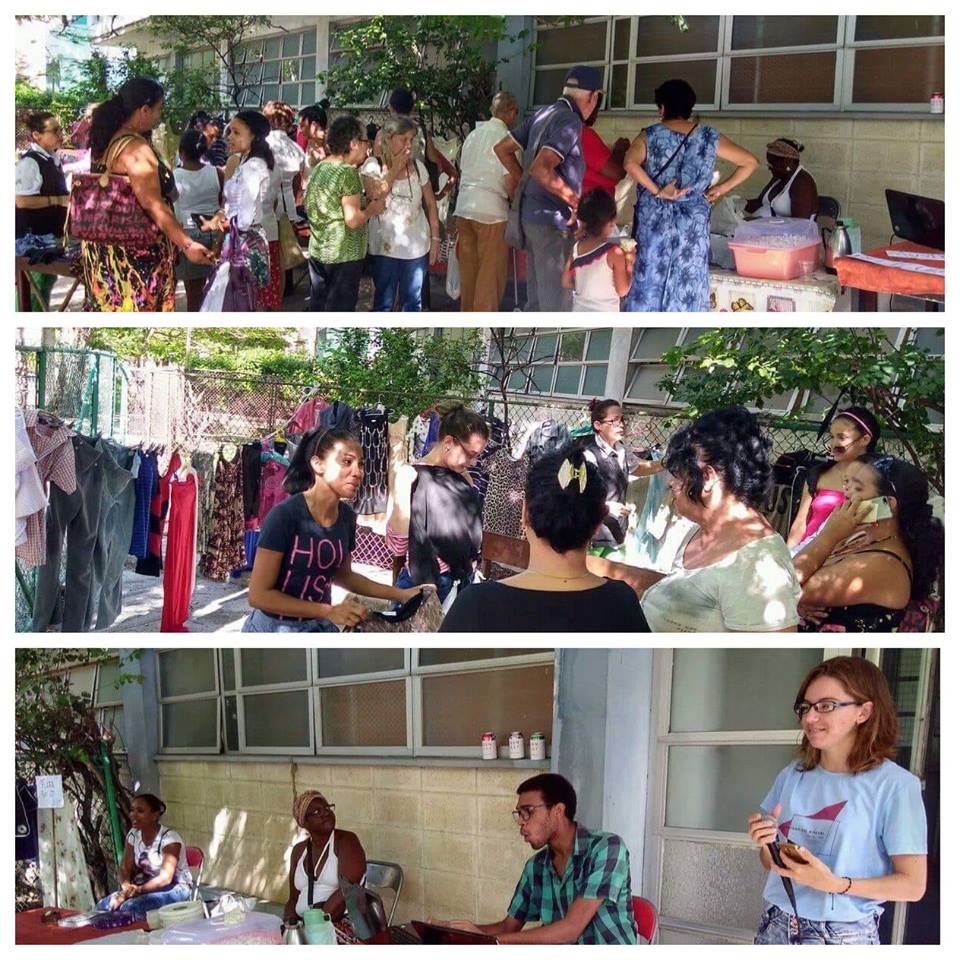 One week before the Genfest, from June 28th to July 5th, more than 400 young people will participate in the Pre-Genfest, a series of social activities in 20 different locations in Southeast Asia. The Pre-Genfest is a laboratory of social work for youth who want to have an experience of intercultural exchange and contribute to social change. Participants will have the opportunity to roll up their sleeves to work in marginalized neighborhoods, social centers, and to participate in ecological and environmental activities. The Pre-Genfest will also provide opportunities to go beyond social borders by visiting orphanages, prisons, and to interact with people from other cultures and religions. Young people will be immersed in the various social and cultural situations of the cities where the Pre-Genfest will take place. “The purpose of the Pre-Genfest is to offer to the youth, who are coming to the Genfest in Manila, the opportunity to have an experience —in miniature— of universal brotherhood. It also aims to open their hearts to the social realities that other people are living in different areas, perhaps kilometers away from their homes,” explains Romè Vital one of the coordinators of this endeavor. Each location will have a different flavor. “We want to give the possibility, for those who are interested, to know more about the cultural diversity of our people in Asia,” says Vital. Some people will be exposed to the peripheries of fast pace city-life of megalopolis such as Hong Kong and Seoul, and others will visit rural areas in Masbate, or Pangasinan in the Philippines. Some will experience first-hand interreligious dialogue in cities such as Chiang Mai, Thailand; Medan, Indonesia; and Yangon, Myanmar, and others will participate in ecological activities such as helping harvesting rice in Hanoi, Vietnam; or cleaning up some beaches of Palawan, Philippines, a well-known tourist destination. A socio-cultural walkthrough in history is also part of the program in many locations. In Seoul, Korea, for example, participants will learn the background of the events that brought to the division of North and South Korea, and experts will conduct workshops to learn how building peace in different locations has repercussions all over the world. Interreligious dialogue will be also part of the program. In Coimbatore, India, participants will be offered an intercultural and interfaith social experience guided by Gandhi’s motto “be the change you want to see,” In Taipei, Taiwan, the youth will interact with indigenous inhabitants of the island, and in Aklan, Philippines, participants will go beyond social borders of race and ethnicity through an immersion with the community of Atis (Aetas) – an ethnic tribe that is believed to be the original settlers of the island of Boracay. Other locations include Mumbai, India; Ho Chi Min, Vietnam; Bangkok, Thailand; and different cities in the Philippines such as Baguio, Cebu, Dumaguete, La Union, and Tacloban. The collaboration with organizations such as Bukas Palad, and Façenda da Esperanza in the Philippines, and the Shanti Ashram in India, among others, was fundamental in the preparation of the Pre-Genfest. According to Vital, the Pre-Genfest will have an indelible impact in the life of the youth who will participate as they realize that building a united world starts with concrete actions. In fact, Pope Francis —during his visit to Loppiano on May 10th, 2018— pointed out the importance of training “oneself to use the three languages together: of the mind, of the heart and of the hands,” which is a fundamental element in the formation of new generations. He also invited the Focolare Movement to be “in service to all, with the gaze that embraces all of humanity, beginning with those who in whatever way are relegated to the peripheries of existence.” By the time the Pre-Genfest participants will arrive in Manila for the Genfest, they would have experienced in a small scale what universal brotherhood means and how to build a united world with their own hands. This experience will surely contribute as a leaven to make the Genfest an expression of the united world we want to build together. Vital encourages to participate in the Pre-Genfest “with an open heart,” in that way this experience will be an “experience of God” as Chiara Lubich defined the Genfest. María Clara Ramírez
One week before the Genfest, from June 28th to July 5th, more than 400 young people will participate in the Pre-Genfest, a series of social activities in 20 different locations in Southeast Asia. The Pre-Genfest is a laboratory of social work for youth who want to have an experience of intercultural exchange and contribute to social change. Participants will have the opportunity to roll up their sleeves to work in marginalized neighborhoods, social centers, and to participate in ecological and environmental activities. The Pre-Genfest will also provide opportunities to go beyond social borders by visiting orphanages, prisons, and to interact with people from other cultures and religions. Young people will be immersed in the various social and cultural situations of the cities where the Pre-Genfest will take place. “The purpose of the Pre-Genfest is to offer to the youth, who are coming to the Genfest in Manila, the opportunity to have an experience —in miniature— of universal brotherhood. It also aims to open their hearts to the social realities that other people are living in different areas, perhaps kilometers away from their homes,” explains Romè Vital one of the coordinators of this endeavor. Each location will have a different flavor. “We want to give the possibility, for those who are interested, to know more about the cultural diversity of our people in Asia,” says Vital. Some people will be exposed to the peripheries of fast pace city-life of megalopolis such as Hong Kong and Seoul, and others will visit rural areas in Masbate, or Pangasinan in the Philippines. Some will experience first-hand interreligious dialogue in cities such as Chiang Mai, Thailand; Medan, Indonesia; and Yangon, Myanmar, and others will participate in ecological activities such as helping harvesting rice in Hanoi, Vietnam; or cleaning up some beaches of Palawan, Philippines, a well-known tourist destination. A socio-cultural walkthrough in history is also part of the program in many locations. In Seoul, Korea, for example, participants will learn the background of the events that brought to the division of North and South Korea, and experts will conduct workshops to learn how building peace in different locations has repercussions all over the world. Interreligious dialogue will be also part of the program. In Coimbatore, India, participants will be offered an intercultural and interfaith social experience guided by Gandhi’s motto “be the change you want to see,” In Taipei, Taiwan, the youth will interact with indigenous inhabitants of the island, and in Aklan, Philippines, participants will go beyond social borders of race and ethnicity through an immersion with the community of Atis (Aetas) – an ethnic tribe that is believed to be the original settlers of the island of Boracay. Other locations include Mumbai, India; Ho Chi Min, Vietnam; Bangkok, Thailand; and different cities in the Philippines such as Baguio, Cebu, Dumaguete, La Union, and Tacloban. The collaboration with organizations such as Bukas Palad, and Façenda da Esperanza in the Philippines, and the Shanti Ashram in India, among others, was fundamental in the preparation of the Pre-Genfest. According to Vital, the Pre-Genfest will have an indelible impact in the life of the youth who will participate as they realize that building a united world starts with concrete actions. In fact, Pope Francis —during his visit to Loppiano on May 10th, 2018— pointed out the importance of training “oneself to use the three languages together: of the mind, of the heart and of the hands,” which is a fundamental element in the formation of new generations. He also invited the Focolare Movement to be “in service to all, with the gaze that embraces all of humanity, beginning with those who in whatever way are relegated to the peripheries of existence.” By the time the Pre-Genfest participants will arrive in Manila for the Genfest, they would have experienced in a small scale what universal brotherhood means and how to build a united world with their own hands. This experience will surely contribute as a leaven to make the Genfest an expression of the united world we want to build together. Vital encourages to participate in the Pre-Genfest “with an open heart,” in that way this experience will be an “experience of God” as Chiara Lubich defined the Genfest. María Clara Ramírez
Watch video
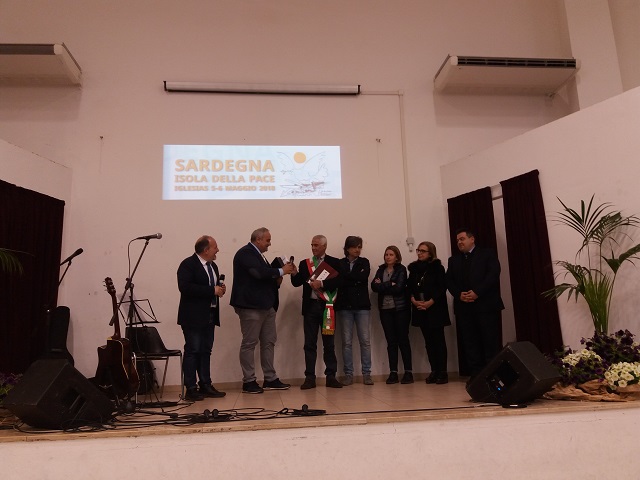
24 Jun 2018 | Focolare Worldwide
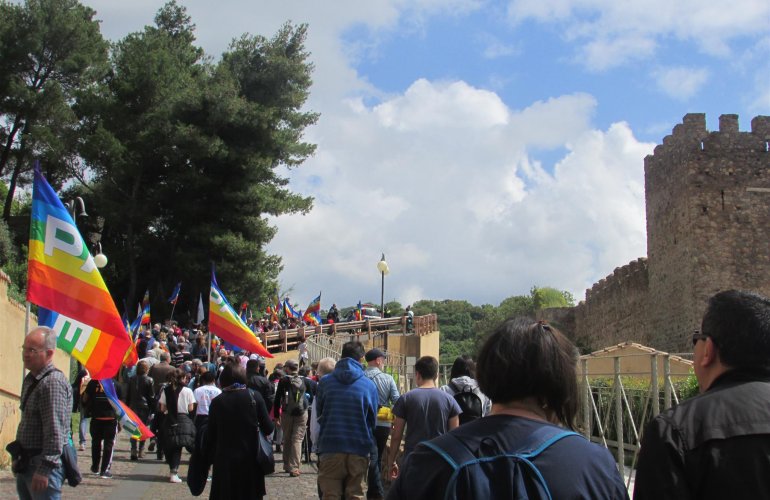 Sulcis-Iglesiente is an historical region of Sardinia, characterized not only by its impressive natural beauty, but also for the story of the mine workers: a human, spiritual, cultural and environmental patrimony. It is a unique jewel in the world, which has not yet expressed its full potential, also from the economical point of view. On March 3, 2017, a conference on disarmament was held in Calgriari organized by the Domenico Mangano Scuola di Partecipazione Politica. Several residents from Sulcis-Iglesiente were directly involved, since the headquarters of the RWM Italia is controlled by the Rheinmetall bomb factory, which sells bombs to Saudi Arabia and utilized for the war in Yemen. When this became known, a committee was formed one year ago, joining the forces for a common objective: reconverting the military factory into a civilian operation. This is the Comitato riconversione RWM for peace, a sustainable project, the reconversion of a war industry, disamament, public sharing in the reconversion process and the protection of the natural environmental and social patrimony of Sulcis-Iglesiente.”
Sulcis-Iglesiente is an historical region of Sardinia, characterized not only by its impressive natural beauty, but also for the story of the mine workers: a human, spiritual, cultural and environmental patrimony. It is a unique jewel in the world, which has not yet expressed its full potential, also from the economical point of view. On March 3, 2017, a conference on disarmament was held in Calgriari organized by the Domenico Mangano Scuola di Partecipazione Politica. Several residents from Sulcis-Iglesiente were directly involved, since the headquarters of the RWM Italia is controlled by the Rheinmetall bomb factory, which sells bombs to Saudi Arabia and utilized for the war in Yemen. When this became known, a committee was formed one year ago, joining the forces for a common objective: reconverting the military factory into a civilian operation. This is the Comitato riconversione RWM for peace, a sustainable project, the reconversion of a war industry, disamament, public sharing in the reconversion process and the protection of the natural environmental and social patrimony of Sulcis-Iglesiente.” 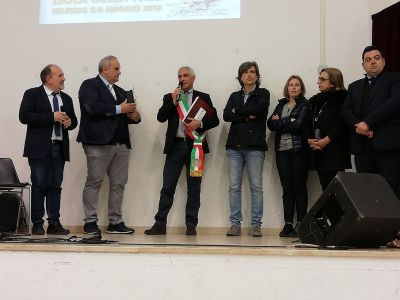 Cinzia Guaita from the Focolare Movement is one of the promoters of the project. She reports: “The work of the committee is not easy, because Sulcis-Iglesiante is a region where jobs are scarce and, the jobs that do exist are defended with pitchforks and shovels. It isn’t easy to insert a process that would bring about a change in thinking and doing things differently, which might turn out to be more risky.” “We’re a very close-knit and diverse network. Before, nobody talked about it. Now, the ethical, environmental and legal questions are widespread. There has been one cultural result, although it is a long-term process.” Where can the greatest change be seen? “Let’s take the topic of work: before, we coudn’t discuss it; whereas, now, along with work there are other topics like peace, justice – and that’s no small matter for such a poor region as ours.” You talk about confronting, but you all stress dialogue… “That’s true, we’re dialoging and we do that with everyone, because this is a problem that regards everyone and it can be resolved by looking at the problem from different points of view. Let me give you an example: We opened a table for a technical discussion with experts, to study a reconversion plan. There were technicians, university experts and others like Banca Etica, Protestant Church: The committee is a sort of laboratory, non-conclusive, the beginning of a concrete process.”
Cinzia Guaita from the Focolare Movement is one of the promoters of the project. She reports: “The work of the committee is not easy, because Sulcis-Iglesiante is a region where jobs are scarce and, the jobs that do exist are defended with pitchforks and shovels. It isn’t easy to insert a process that would bring about a change in thinking and doing things differently, which might turn out to be more risky.” “We’re a very close-knit and diverse network. Before, nobody talked about it. Now, the ethical, environmental and legal questions are widespread. There has been one cultural result, although it is a long-term process.” Where can the greatest change be seen? “Let’s take the topic of work: before, we coudn’t discuss it; whereas, now, along with work there are other topics like peace, justice – and that’s no small matter for such a poor region as ours.” You talk about confronting, but you all stress dialogue… “That’s true, we’re dialoging and we do that with everyone, because this is a problem that regards everyone and it can be resolved by looking at the problem from different points of view. Let me give you an example: We opened a table for a technical discussion with experts, to study a reconversion plan. There were technicians, university experts and others like Banca Etica, Protestant Church: The committee is a sort of laboratory, non-conclusive, the beginning of a concrete process.”  How is the RWM factory seen in the territory? “The factory has been inserted with a lot of benevolence in the local social dynamic, although it violates a national law that forbids the sale of arms to countries at war, or that doesn’t respect human rights; but it also provides for the possiblity receiving funds for the reconversion of factories that produce arms. So, the possiblities are there. Reconversion doesn’t mean taking a leap in the dark; it’s a shared growing process and an improvement in the life of everyone. What role has the press played in all this? “A very decisive role I would say, and we ourselves are amazed that the international press has shown interest. German television is watching us and has reported in Germany what is happening here. There is much silence about the wars, such as the wars in Yemen. Turning the spotlight on those conflicts has brought the problems of such places to the attention of the world. If we want to build peace, we can’t close our eyes. Everyone is needed if we want small local efforts to be broadcasted more widely. This is what loving a local territory means. It may be risky, but it’s worth the risk when it comes to peace.” Source: United World Project
How is the RWM factory seen in the territory? “The factory has been inserted with a lot of benevolence in the local social dynamic, although it violates a national law that forbids the sale of arms to countries at war, or that doesn’t respect human rights; but it also provides for the possiblity receiving funds for the reconversion of factories that produce arms. So, the possiblities are there. Reconversion doesn’t mean taking a leap in the dark; it’s a shared growing process and an improvement in the life of everyone. What role has the press played in all this? “A very decisive role I would say, and we ourselves are amazed that the international press has shown interest. German television is watching us and has reported in Germany what is happening here. There is much silence about the wars, such as the wars in Yemen. Turning the spotlight on those conflicts has brought the problems of such places to the attention of the world. If we want to build peace, we can’t close our eyes. Everyone is needed if we want small local efforts to be broadcasted more widely. This is what loving a local territory means. It may be risky, but it’s worth the risk when it comes to peace.” Source: United World Project
21 Jun 2018 | Focolare Worldwide
Pope Francis has embarked on an ecumenical pilgrimage which is taking place today at the Ecumenical Centre in Geneva (Switzerland), on the occasion of the 70th anniversary of the foundation of the World Council of Churches (WCC). The theme of the celebration: “Walking, praying and working together”. The WCC is the largest and most inclusive body among the various ecumenical organizations. Founded in Amsterdam, in the Netherlands, in 1948, it currently comprises about 350 churches in 110 countries around the world and represents about 500 million Christians. Based in Geneva, it includes most of the Orthodox churches, numerous historical Protestant churches (Anglican, Baptist, Lutheran, Methodist, the Reformed Church) and several independent churches. The Catholic Church is not a member of WCC, but Catholic theologians work in important commissions as fully fledged members. Among the scheduled appointments include the common prayer and the afternoon meeting in the presence of the Reverend Olav Fykse Tveit and Mr Agnes Abuom, respectively Secretary General and Moderator of WCC. In conclusion there will be a significant greeting to the eight members of North Korea and South Korea.
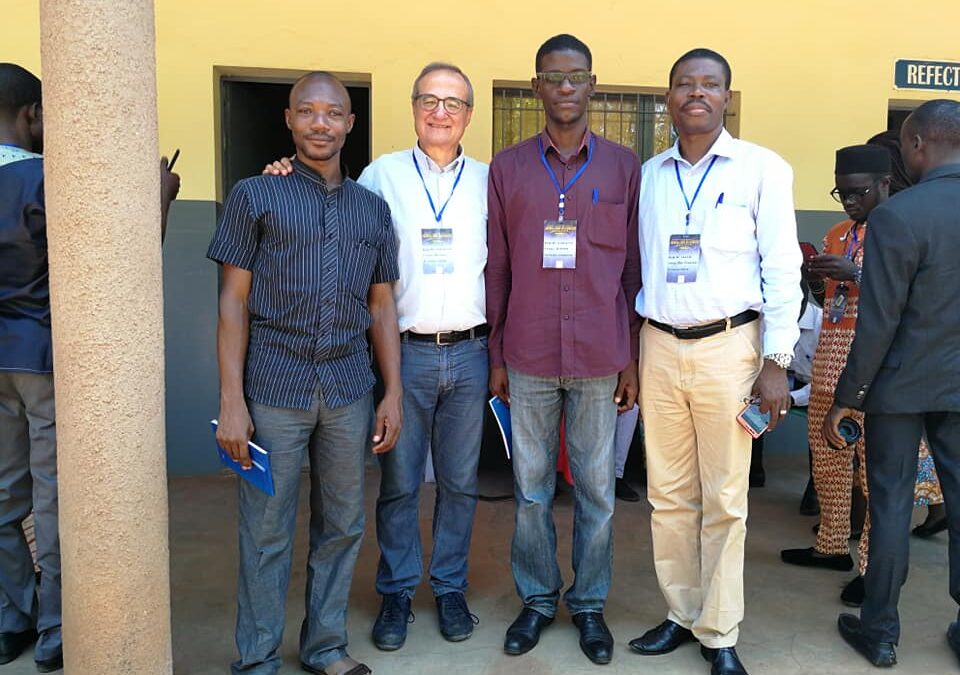
20 Jun 2018 | Focolare Worldwide
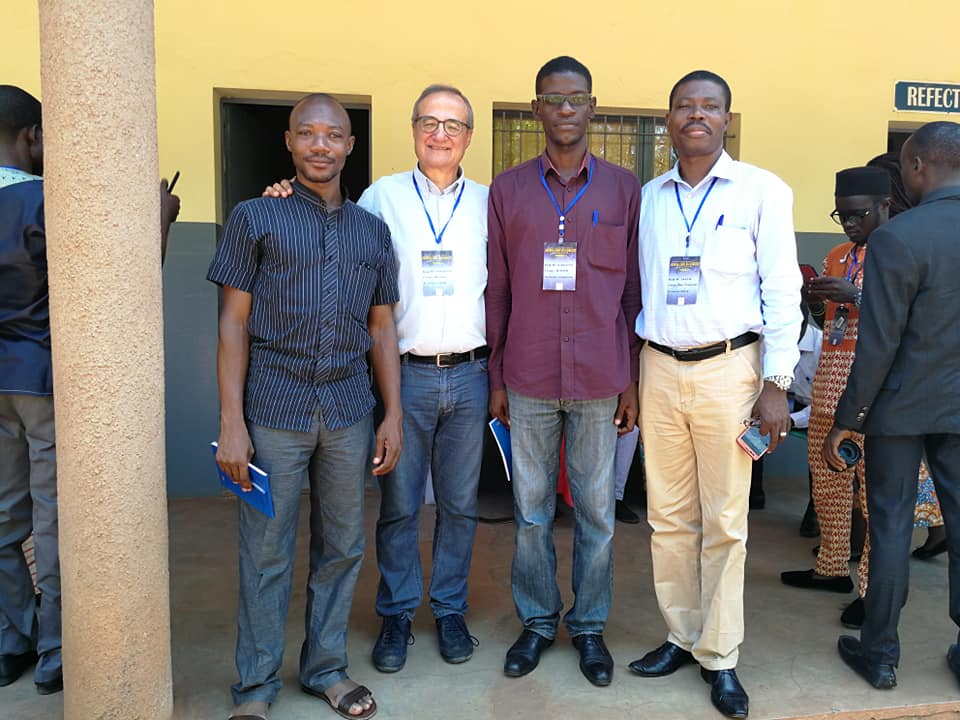 A seminar on the Journalism of Dialogue took place in Bodo-Dioulasso in Burkina Faso from 9 to 13 June. Michele Zanzucchi from Italy, Guy Roland from Benin, Armand Djoualeu from Cameroon plus many Christian and Muslim professionals and students from Niger, Mali, Ivory Coast, Benin and Burkina Faso participated. The aim of the seminar was to equip journalists with the skills of dialogue whereby respect and responsibility is shown towards each person. The seminar opened with a round table on the “journalism of migration” which was attended by representatives from the government and from the Catholic church. One of the proposals emerging from this was the desire to form a regional network of journalists who can correctly form and inform the public about migration, especially migration to Europe.
A seminar on the Journalism of Dialogue took place in Bodo-Dioulasso in Burkina Faso from 9 to 13 June. Michele Zanzucchi from Italy, Guy Roland from Benin, Armand Djoualeu from Cameroon plus many Christian and Muslim professionals and students from Niger, Mali, Ivory Coast, Benin and Burkina Faso participated. The aim of the seminar was to equip journalists with the skills of dialogue whereby respect and responsibility is shown towards each person. The seminar opened with a round table on the “journalism of migration” which was attended by representatives from the government and from the Catholic church. One of the proposals emerging from this was the desire to form a regional network of journalists who can correctly form and inform the public about migration, especially migration to Europe.
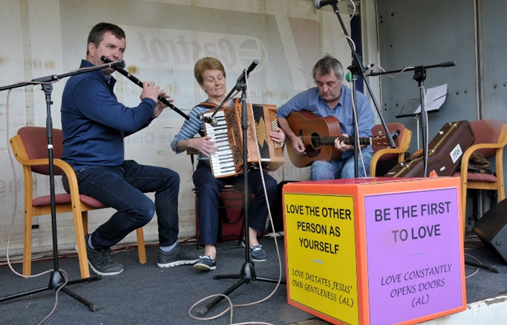
20 Jun 2018 | Focolare Worldwide
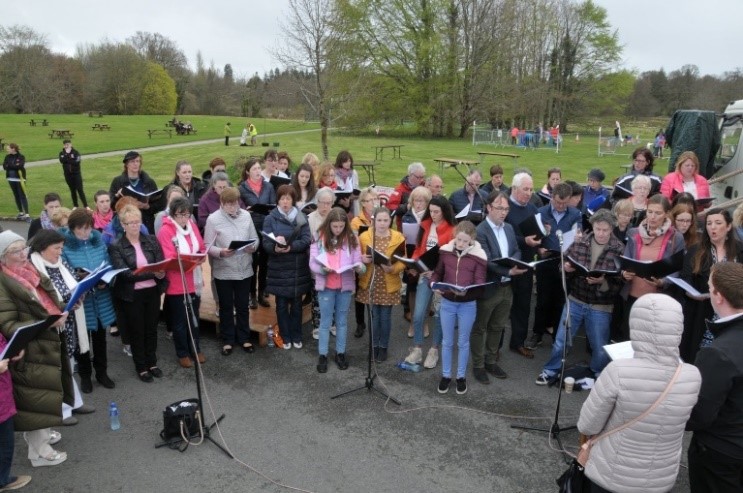 Lough Key Forest Park is close to 2,000 acres of silence, natural paths, majestic cedars and a lake on the south coast oif Lough Key, 25 miles southwest of Sligo Town and 2 miles east of Boyle. This was the setting for a day for families organized by the Diocese of Elphin at the end of April. In collaboration with Bishop Kevin Doran, one of the promoters for the event was the Focolare Movement. “All are invited to an atmosphere full of play, sharing and friendship,” the bishop had said, “including families of other religious denominations, neighbors and friends.” The goal was to prepare for the main event with Pope Francis in the Irish capital, which will bring together families from all over the world at the end of August. The theme will be “The Gospel of the Family: Joy for the World.” Every three years, this international event puts the focus once again on Christian families, as cornerstones of society. Following the opening on August 21, which will be held simultaneously in all the Irish dioceses, there will be an international conference in Dublin for three days (22–24), featuring experts from various parts of the world, experiences, workshops and activities for children and teens. With the Holy Father’s arrival on August 25, there will be an immense festival for families, a chance to hear music and experiences from the continents, as well as, naturally, long-awaited words from the pope. Pope Francis will celebrate a solemn Eucharistic service on the 26th at Phoenix Park in Dublin, which will close the event. “We aren’t many in this part of Ireland,” the Focolare community writes, “but we wanted to respond to the bishop’s invitation.” For a year now, Ireland has been more aware of the complex dynamics in each family, as well its role in society. Together with all the families of the diocese, preparations are underway for collective reflection in the light of the apostolic exhortation Amoris Laetiita. Supported by the entire Focolare community, Evelyn is part of the preparatory committee. “For me this is a great opportunity to build relationships of unity with everyone. Every idea, every contribution, every decision or action to take has been the result of moving forward together with the bishop. There’s been a climate of mutual love created among us all.”
Lough Key Forest Park is close to 2,000 acres of silence, natural paths, majestic cedars and a lake on the south coast oif Lough Key, 25 miles southwest of Sligo Town and 2 miles east of Boyle. This was the setting for a day for families organized by the Diocese of Elphin at the end of April. In collaboration with Bishop Kevin Doran, one of the promoters for the event was the Focolare Movement. “All are invited to an atmosphere full of play, sharing and friendship,” the bishop had said, “including families of other religious denominations, neighbors and friends.” The goal was to prepare for the main event with Pope Francis in the Irish capital, which will bring together families from all over the world at the end of August. The theme will be “The Gospel of the Family: Joy for the World.” Every three years, this international event puts the focus once again on Christian families, as cornerstones of society. Following the opening on August 21, which will be held simultaneously in all the Irish dioceses, there will be an international conference in Dublin for three days (22–24), featuring experts from various parts of the world, experiences, workshops and activities for children and teens. With the Holy Father’s arrival on August 25, there will be an immense festival for families, a chance to hear music and experiences from the continents, as well as, naturally, long-awaited words from the pope. Pope Francis will celebrate a solemn Eucharistic service on the 26th at Phoenix Park in Dublin, which will close the event. “We aren’t many in this part of Ireland,” the Focolare community writes, “but we wanted to respond to the bishop’s invitation.” For a year now, Ireland has been more aware of the complex dynamics in each family, as well its role in society. Together with all the families of the diocese, preparations are underway for collective reflection in the light of the apostolic exhortation Amoris Laetiita. Supported by the entire Focolare community, Evelyn is part of the preparatory committee. “For me this is a great opportunity to build relationships of unity with everyone. Every idea, every contribution, every decision or action to take has been the result of moving forward together with the bishop. There’s been a climate of mutual love created among us all.”  At the entrance to the immense public park, hanging from the tree branches, were the six sides of the Cube of Love, which included words from Amoris Laetitia and Chiara Lubich on the family. Moving in the wind, the cube greeted the public upon arrival. The same cube was rolled on stage at the beginning of the day, so that everyone could tune in to the message, “Be the first to love.” The day was a festive sequence of music and workshops on caring for the environment, family games, entertainment, face painting, dance and helping the needy. There was a particularly intense moment of prayer together, led by the Anglican and Catholic bishops. They later cut a cake together, which not by chance was cube shaped. The moment was captured permanently by the local paper, the Roscommon Herald, and other websites and newsletters. At the end of the day one of the participants, Andrew, sang a song he had written about the three words that Pope Francis had suggested for family life: “Please”, “Thanks” and “Sorry.” “As I was circulating among the people,” said Áine from the Focolare, “I thought of the words from ‘The great attraction of modern times,’ a meditation written by Chiara Lubich. I felt they described that moment, in the midst of a crowd made up of people from faraway villages and countries – not just Catholics, but other religious denominations. “Some were from even further away, like those who had just arrived as refugees and asylum seekers, mostly Muslims from Africa and the Middle East. They were surprised to find such a focus on the family in Ireland as well.”
At the entrance to the immense public park, hanging from the tree branches, were the six sides of the Cube of Love, which included words from Amoris Laetitia and Chiara Lubich on the family. Moving in the wind, the cube greeted the public upon arrival. The same cube was rolled on stage at the beginning of the day, so that everyone could tune in to the message, “Be the first to love.” The day was a festive sequence of music and workshops on caring for the environment, family games, entertainment, face painting, dance and helping the needy. There was a particularly intense moment of prayer together, led by the Anglican and Catholic bishops. They later cut a cake together, which not by chance was cube shaped. The moment was captured permanently by the local paper, the Roscommon Herald, and other websites and newsletters. At the end of the day one of the participants, Andrew, sang a song he had written about the three words that Pope Francis had suggested for family life: “Please”, “Thanks” and “Sorry.” “As I was circulating among the people,” said Áine from the Focolare, “I thought of the words from ‘The great attraction of modern times,’ a meditation written by Chiara Lubich. I felt they described that moment, in the midst of a crowd made up of people from faraway villages and countries – not just Catholics, but other religious denominations. “Some were from even further away, like those who had just arrived as refugees and asylum seekers, mostly Muslims from Africa and the Middle East. They were surprised to find such a focus on the family in Ireland as well.”
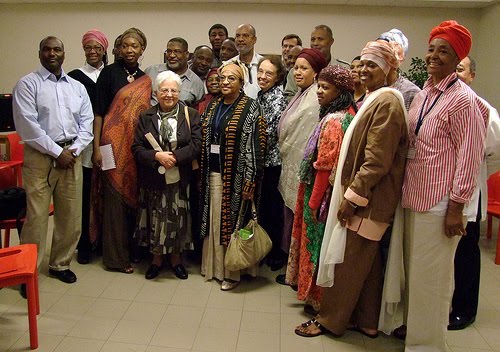
14 Jun 2018 | Focolare Worldwide
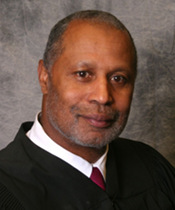 He has been a civil court judge of the Marion Court in Indianapolis since 1999, and in 2007 he was declared Judge of the Year because of his work among prisoners and drug defendants. David Shaheed is African-American and Muslim. He he shares his passion for law and interreligious dialogue. Since 2019 he has presided over the Interfaith Alliance of Indianapolis. His resume can leave us awestruck, but Dr Shaheed immediately puts us at ease with his simplicity and freedom as he talks about his faith and of the relationship that linked him and continues to link him to Chiara Lubich. She gave me the courage to step beyond our faiths, to help the other and to understand them. But this didn’t remain an abstract concept, because Chiara gave me the means by which to live and show it.” The judge drew inspiration from the experience of destruction of the Second World War that Chiara Lubich went through, to come up with a reform of his court. “The world was under the pressure of this enormous war. And yet this young woman from Trent overcame her personal fears in order to seek out the sufferings of others: Her witness gave me the courage to establish in my workplace on the bench a special tribunal for people with psychological or drug addiction problems.” Breaking a judicial tradition that entrusted the ordinary tribunals with the treatment of defendants with psychic or alcohol and drug dependence, with consequent convictions that do not provide for the rehabilitation of the person, Dr Shaheed asked his colleagues to take note of the impact the prison or probation had on the life of the condemned. In fact many of these returned to court or prison for new crimes without receiving adequate treatment for themselves or for their handicaps. After an initial scepticism and embarrassment, the challenge of “serving the least” has become the common goal of the other judges of the local court which, overcoming the tradition of Common Law that assigns to the courts of appeal expertise on the matter, last year launched a special section for “special” people. In this way the defendants are assisted in accessing cures and specialized advice both in prison and in court, so that the entire judicial system are oriented to the needs of the person and not to conviction and punishment for petty crimes.
He has been a civil court judge of the Marion Court in Indianapolis since 1999, and in 2007 he was declared Judge of the Year because of his work among prisoners and drug defendants. David Shaheed is African-American and Muslim. He he shares his passion for law and interreligious dialogue. Since 2019 he has presided over the Interfaith Alliance of Indianapolis. His resume can leave us awestruck, but Dr Shaheed immediately puts us at ease with his simplicity and freedom as he talks about his faith and of the relationship that linked him and continues to link him to Chiara Lubich. She gave me the courage to step beyond our faiths, to help the other and to understand them. But this didn’t remain an abstract concept, because Chiara gave me the means by which to live and show it.” The judge drew inspiration from the experience of destruction of the Second World War that Chiara Lubich went through, to come up with a reform of his court. “The world was under the pressure of this enormous war. And yet this young woman from Trent overcame her personal fears in order to seek out the sufferings of others: Her witness gave me the courage to establish in my workplace on the bench a special tribunal for people with psychological or drug addiction problems.” Breaking a judicial tradition that entrusted the ordinary tribunals with the treatment of defendants with psychic or alcohol and drug dependence, with consequent convictions that do not provide for the rehabilitation of the person, Dr Shaheed asked his colleagues to take note of the impact the prison or probation had on the life of the condemned. In fact many of these returned to court or prison for new crimes without receiving adequate treatment for themselves or for their handicaps. After an initial scepticism and embarrassment, the challenge of “serving the least” has become the common goal of the other judges of the local court which, overcoming the tradition of Common Law that assigns to the courts of appeal expertise on the matter, last year launched a special section for “special” people. In this way the defendants are assisted in accessing cures and specialized advice both in prison and in court, so that the entire judicial system are oriented to the needs of the person and not to conviction and punishment for petty crimes.  “I grew up in America where there has been a strong history of racism until now, but meeting the Focolare has helped me to realize that not all the whites and their European ancestors held the same hostility toward Afro-Americans. So it was a liberating experience for me, because I was living under the influence of this mentality and for the first time I had brothers of European descent. I learned from the Focolare that Jesus’s life consisted in showing mercy and compassion to others. I learned to live that way as a judge and to experience compassion. For me, being part of the Focolare community means giving the best proof of how to live the attributes of God as written in the Koran; that is, love, mercy and compassion.” Looking at the Movement’s mission ten years on from the death of Chiara Lubich, the judge from Indiana wishes that “the dialogue goes forward, because the Focolare’s model is one of the best models for encounter among people of different religions, ethnic groups or nationalities. In an atmosphere of strong nationalism such as we are living, where one’s own interests take priority over everything else, our experience is a counter-narrative because it shows that the word of God leads people to encounter one another and not to isolate themselves from each another – and this is an example not only for the faith and the religion: but it is an example of life that can serve our country.” Source: Città Nuova no.6., June 6, 2018
“I grew up in America where there has been a strong history of racism until now, but meeting the Focolare has helped me to realize that not all the whites and their European ancestors held the same hostility toward Afro-Americans. So it was a liberating experience for me, because I was living under the influence of this mentality and for the first time I had brothers of European descent. I learned from the Focolare that Jesus’s life consisted in showing mercy and compassion to others. I learned to live that way as a judge and to experience compassion. For me, being part of the Focolare community means giving the best proof of how to live the attributes of God as written in the Koran; that is, love, mercy and compassion.” Looking at the Movement’s mission ten years on from the death of Chiara Lubich, the judge from Indiana wishes that “the dialogue goes forward, because the Focolare’s model is one of the best models for encounter among people of different religions, ethnic groups or nationalities. In an atmosphere of strong nationalism such as we are living, where one’s own interests take priority over everything else, our experience is a counter-narrative because it shows that the word of God leads people to encounter one another and not to isolate themselves from each another – and this is an example not only for the faith and the religion: but it is an example of life that can serve our country.” Source: Città Nuova no.6., June 6, 2018

 One week before the Genfest, from June 28th to July 5th, more than 400 young people will participate in the Pre-Genfest, a series of social activities in 20 different locations in Southeast Asia. The Pre-Genfest is a laboratory of social work for youth who want to have an experience of intercultural exchange and contribute to social change. Participants will have the opportunity to roll up their sleeves to work in marginalized neighborhoods, social centers, and to participate in ecological and environmental activities. The Pre-Genfest will also provide opportunities to go beyond social borders by visiting orphanages, prisons, and to interact with people from other cultures and religions. Young people will be immersed in the various social and cultural situations of the cities where the Pre-Genfest will take place. “The purpose of the Pre-Genfest is to offer to the youth, who are coming to the Genfest in Manila, the opportunity to have an experience —in miniature— of universal brotherhood. It also aims to open their hearts to the social realities that other people are living in different areas, perhaps kilometers away from their homes,” explains Romè Vital one of the coordinators of this endeavor. Each location will have a different flavor. “We want to give the possibility, for those who are interested, to know more about the cultural diversity of our people in Asia,” says Vital. Some people will be exposed to the peripheries of fast pace city-life of megalopolis such as Hong Kong and Seoul, and others will visit rural areas in Masbate, or Pangasinan in the Philippines. Some will experience first-hand interreligious dialogue in cities such as Chiang Mai, Thailand; Medan, Indonesia; and Yangon, Myanmar, and others will participate in ecological activities such as helping harvesting rice in Hanoi, Vietnam; or cleaning up some beaches of Palawan, Philippines, a well-known tourist destination. A socio-cultural walkthrough in history is also part of the program in many locations. In Seoul, Korea, for example, participants will learn the background of the events that brought to the division of North and South Korea, and experts will conduct workshops to learn how building peace in different locations has repercussions all over the world. Interreligious dialogue will be also part of the program. In Coimbatore, India, participants will be offered an intercultural and interfaith social experience guided by Gandhi’s motto “be the change you want to see,” In Taipei, Taiwan, the youth will interact with indigenous inhabitants of the island, and in Aklan, Philippines, participants will go beyond social borders of race and ethnicity through an immersion with the community of Atis (Aetas) – an ethnic tribe that is believed to be the original settlers of the island of Boracay. Other locations include Mumbai, India; Ho Chi Min, Vietnam; Bangkok, Thailand; and different cities in the Philippines such as Baguio, Cebu, Dumaguete, La Union, and Tacloban. The collaboration with organizations such as Bukas Palad, and Façenda da Esperanza in the Philippines, and the Shanti Ashram in India, among others, was fundamental in the preparation of the Pre-Genfest. According to Vital, the Pre-Genfest will have an indelible impact in the life of the youth who will participate as they realize that building a united world starts with concrete actions. In fact, Pope Francis —during his visit to Loppiano on May 10th, 2018— pointed out the importance of training “oneself to use the three languages together: of the mind, of the heart and of the hands,” which is a fundamental element in the formation of new generations. He also invited the Focolare Movement to be “in service to all, with the gaze that embraces all of humanity, beginning with those who in whatever way are relegated to the peripheries of existence.” By the time the Pre-Genfest participants will arrive in Manila for the Genfest, they would have experienced in a small scale what universal brotherhood means and how to build a united world with their own hands. This experience will surely contribute as a leaven to make the Genfest an expression of the united world we want to build together. Vital encourages to participate in the Pre-Genfest “with an open heart,” in that way this experience will be an “experience of God” as Chiara Lubich defined the Genfest. María Clara Ramírez
One week before the Genfest, from June 28th to July 5th, more than 400 young people will participate in the Pre-Genfest, a series of social activities in 20 different locations in Southeast Asia. The Pre-Genfest is a laboratory of social work for youth who want to have an experience of intercultural exchange and contribute to social change. Participants will have the opportunity to roll up their sleeves to work in marginalized neighborhoods, social centers, and to participate in ecological and environmental activities. The Pre-Genfest will also provide opportunities to go beyond social borders by visiting orphanages, prisons, and to interact with people from other cultures and religions. Young people will be immersed in the various social and cultural situations of the cities where the Pre-Genfest will take place. “The purpose of the Pre-Genfest is to offer to the youth, who are coming to the Genfest in Manila, the opportunity to have an experience —in miniature— of universal brotherhood. It also aims to open their hearts to the social realities that other people are living in different areas, perhaps kilometers away from their homes,” explains Romè Vital one of the coordinators of this endeavor. Each location will have a different flavor. “We want to give the possibility, for those who are interested, to know more about the cultural diversity of our people in Asia,” says Vital. Some people will be exposed to the peripheries of fast pace city-life of megalopolis such as Hong Kong and Seoul, and others will visit rural areas in Masbate, or Pangasinan in the Philippines. Some will experience first-hand interreligious dialogue in cities such as Chiang Mai, Thailand; Medan, Indonesia; and Yangon, Myanmar, and others will participate in ecological activities such as helping harvesting rice in Hanoi, Vietnam; or cleaning up some beaches of Palawan, Philippines, a well-known tourist destination. A socio-cultural walkthrough in history is also part of the program in many locations. In Seoul, Korea, for example, participants will learn the background of the events that brought to the division of North and South Korea, and experts will conduct workshops to learn how building peace in different locations has repercussions all over the world. Interreligious dialogue will be also part of the program. In Coimbatore, India, participants will be offered an intercultural and interfaith social experience guided by Gandhi’s motto “be the change you want to see,” In Taipei, Taiwan, the youth will interact with indigenous inhabitants of the island, and in Aklan, Philippines, participants will go beyond social borders of race and ethnicity through an immersion with the community of Atis (Aetas) – an ethnic tribe that is believed to be the original settlers of the island of Boracay. Other locations include Mumbai, India; Ho Chi Min, Vietnam; Bangkok, Thailand; and different cities in the Philippines such as Baguio, Cebu, Dumaguete, La Union, and Tacloban. The collaboration with organizations such as Bukas Palad, and Façenda da Esperanza in the Philippines, and the Shanti Ashram in India, among others, was fundamental in the preparation of the Pre-Genfest. According to Vital, the Pre-Genfest will have an indelible impact in the life of the youth who will participate as they realize that building a united world starts with concrete actions. In fact, Pope Francis —during his visit to Loppiano on May 10th, 2018— pointed out the importance of training “oneself to use the three languages together: of the mind, of the heart and of the hands,” which is a fundamental element in the formation of new generations. He also invited the Focolare Movement to be “in service to all, with the gaze that embraces all of humanity, beginning with those who in whatever way are relegated to the peripheries of existence.” By the time the Pre-Genfest participants will arrive in Manila for the Genfest, they would have experienced in a small scale what universal brotherhood means and how to build a united world with their own hands. This experience will surely contribute as a leaven to make the Genfest an expression of the united world we want to build together. Vital encourages to participate in the Pre-Genfest “with an open heart,” in that way this experience will be an “experience of God” as Chiara Lubich defined the Genfest. María Clara Ramírez 

 Sulcis-Iglesiente is an historical region of Sardinia, characterized not only by its impressive natural beauty, but also for the story of the mine workers: a human, spiritual, cultural and environmental patrimony. It is a unique jewel in the world, which has not yet expressed its full potential, also from the economical point of view. On March 3, 2017, a conference on disarmament was held in Calgriari organized by the Domenico Mangano Scuola di Partecipazione Politica. Several residents from Sulcis-Iglesiente were directly involved, since the headquarters of the RWM Italia is controlled by the Rheinmetall bomb factory, which sells bombs to Saudi Arabia and utilized for the war in Yemen. When this became known, a committee was formed one year ago, joining the forces for a common objective: reconverting the military factory into a civilian operation. This is
Sulcis-Iglesiente is an historical region of Sardinia, characterized not only by its impressive natural beauty, but also for the story of the mine workers: a human, spiritual, cultural and environmental patrimony. It is a unique jewel in the world, which has not yet expressed its full potential, also from the economical point of view. On March 3, 2017, a conference on disarmament was held in Calgriari organized by the Domenico Mangano Scuola di Partecipazione Politica. Several residents from Sulcis-Iglesiente were directly involved, since the headquarters of the RWM Italia is controlled by the Rheinmetall bomb factory, which sells bombs to Saudi Arabia and utilized for the war in Yemen. When this became known, a committee was formed one year ago, joining the forces for a common objective: reconverting the military factory into a civilian operation. This is 
 A seminar on the Journalism of Dialogue took place in Bodo-Dioulasso in
A seminar on the Journalism of Dialogue took place in Bodo-Dioulasso in 
 Lough Key Forest Park is close to 2,000 acres of silence, natural paths, majestic cedars and a lake on the south coast oif Lough Key, 25 miles southwest of Sligo Town and 2 miles east of Boyle. This was the setting for a day for families organized by the Diocese of Elphin at the end of April. In collaboration with Bishop Kevin Doran, one of the promoters for the event was the Focolare Movement. “All are invited to an atmosphere full of play, sharing and friendship,” the bishop had said, “including families of other religious denominations, neighbors and friends.” The goal was to prepare for the main event with Pope Francis in the Irish capital, which will bring together families from all over the world at the end of August. The theme will be “The Gospel of the Family: Joy for the World.” Every three years, this international event puts the focus once again on Christian families, as cornerstones of society. Following the opening on August 21, which will be held simultaneously in all the Irish dioceses, there will be an international conference in Dublin for three days (22–24), featuring experts from various parts of the world, experiences, workshops and activities for children and teens. With the Holy Father’s arrival on August 25, there will be an immense
Lough Key Forest Park is close to 2,000 acres of silence, natural paths, majestic cedars and a lake on the south coast oif Lough Key, 25 miles southwest of Sligo Town and 2 miles east of Boyle. This was the setting for a day for families organized by the Diocese of Elphin at the end of April. In collaboration with Bishop Kevin Doran, one of the promoters for the event was the Focolare Movement. “All are invited to an atmosphere full of play, sharing and friendship,” the bishop had said, “including families of other religious denominations, neighbors and friends.” The goal was to prepare for the main event with Pope Francis in the Irish capital, which will bring together families from all over the world at the end of August. The theme will be “The Gospel of the Family: Joy for the World.” Every three years, this international event puts the focus once again on Christian families, as cornerstones of society. Following the opening on August 21, which will be held simultaneously in all the Irish dioceses, there will be an international conference in Dublin for three days (22–24), featuring experts from various parts of the world, experiences, workshops and activities for children and teens. With the Holy Father’s arrival on August 25, there will be an immense 
 He has been a civil court judge of the Marion Court in Indianapolis since 1999, and in 2007 he was declared Judge of the Year because of his work among prisoners and drug defendants. David Shaheed is African-American and Muslim. He he shares his passion for law and
He has been a civil court judge of the Marion Court in Indianapolis since 1999, and in 2007 he was declared Judge of the Year because of his work among prisoners and drug defendants. David Shaheed is African-American and Muslim. He he shares his passion for law and